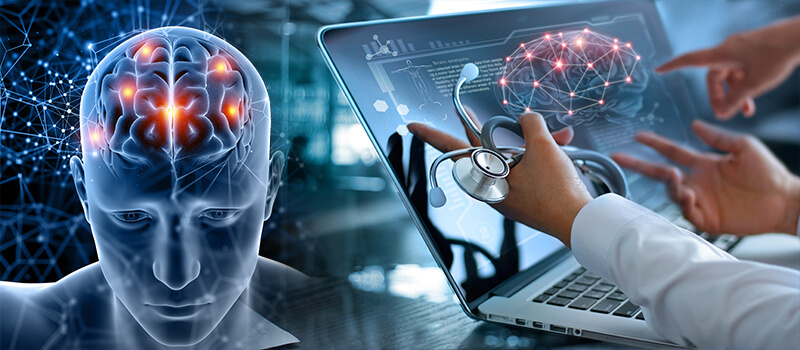A Unit of Asian Institute of Gastroenterology
Advancement In Neurosurgery (Brain And Spine Surgery)

Unnecessary Fears
There is a misapprehension in the minds of many people that if an operation is performed on the brain or the spinal cord, the patient will develop some mental problem (cognitive impairment)or memory disturbances (dementia) or speech disturbances (Aphasic) or get paralysed (plegias) or will land in coma etc. Some people often quote examples of their relatives who underwent operations and got disabled in some way or other. This does not mean that the operation should be blamed. It is the presenting state in which the patient approaches the surgeon that decides the outcome of the operation. Most of the time the surgeries on brain and spine are performed order to provide the patient a good quality of life with increase survival rates and one has to remember that few complications are part of any surgery.
Neurological symptoms
- Headache with vomiting
- weakness of limbs i.e. paralysis
- impaired vision
- gait disturbances
- impaired or loss of memory
- impaired speech
- decreased hearing in one ear or both are some symptoms which indicate involvement of nervous system.
These symptoms by themselves are not a disease. Whenever someone comes with these symptoms and a disease affecting the nervous system is suspected then the doctor examines and investigates the patient to know the exact cause of the symptoms and arrive at a specific diagnosis of the disease.
Treatable Diseases
Most of neurological diseases are curable by medication or surgery due to tremendous improvement in science and technology. Operations on spine and brain are performed during last three decades in India and globally with ease and elegance. One should know that now every advancement in the world is available in India. Therefore, many patients from overseas are coming to India where they get world class treatment at very affordable price.
Today we can cure a large number of brain and spinal cord tumors, traumatic brain injuries like Extra dural hematomas Sub dural heamtomas and intra parenchymal bleeds, Trigrminal neuralgia, Hemi facial spasms, Epilepsy(fits), paediatric congenital problems (Hydrocephalus, chiari malformations, split cord syndromes etc…) cervical spondylosis , lumbar spondylosis , disc prolapse by surgery and providing good functional out comes with very minimal complications.
Untreatable Diseases
There are some diseases of the nervous system that are neither treatable nor curable. These are degenerative diseases, demyelinating diseases, muscle diseases (myopathy) and some neuropathies. For them, the only treatment is supportive treatment in form of physical therapy and symptomatic medication.
What are the advancements
Thanks to the Advancements in the science and technology which has reduced the complication rates in the neurosciences drastically.
Some of the advancements are
- Microscopes for extra magnification and 3-D view
- Use of dyes like 5 ALA and fluorescence to know the Tumor extent in the brain
- Neuronavigation for precisely locating the tumour and minimally invasive brain and spine surgeries
- Neuro endoscopy (removal of pituitary tumours through nose, minimally invasive stitch less spine surgeries for disc problems, Removal of bleeds from brain)
- Intraoperative O Arm (CT scan)
- Intraoperative MRI
- Robotic guided biopsy (enhancing the accuracy) to treat deep seated tumours where reaching the this area is almost impossible with surgical approaches
- Intra operative Nerve monitoring studies to check the status of the nerve function
- Special sequences in MRI like f MRI, Tractography, CSF flow studies, MRS
All these technology facilitates the safe surgical removal of the tumours in both brain and spine and also other neurosurgical procedures thus providing a better functional outcome and preventing complications like paralysis, memory disturbances, speech disturbances, Coma.
Do not Panic
To conclude, I would like to tell that one should not panic of getting operated for brain or spine surgeries if needed. Currently Investigations have improved to such an extent that they can show exactly where the problem is located and what it is. They can guide a surgeon to plan a safe surgery. We at our Center have all the above mentioned advanced technologies and expertise.
Anaesthesia facilities are also very advanced these days and we have high quality of intensive care units available to deal with the most difficult situations.
In short, the facilities available in India are no less than anywhere in the world.
Consultant Neurosurgeon












